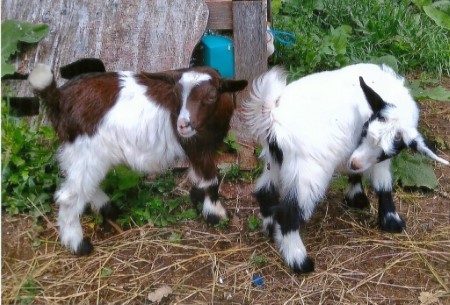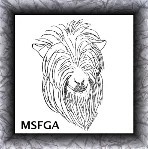 |
| Source: wintersetvet.com |
Miniature Silky Fainting Goats, renowned for their unique characteristics, stand out as a distinct breed within the goat community. Their diminutive size and manageable care requirements make them an attractive option for smaller farms, distinguishing them from their larger meat-oriented counterparts. Known by various monikers such as Myotonic Goats, Tennessee (Meat) Goats, and Nervous Goats, these charming creatures possess a fascinating trait that sets them apart: myotonia congenita.
Contrary to the popular misconception of "fainting," Miniature Silky Fainting Goats do not actually lose consciousness during episodes of muscle stiffness caused by myotonia. Instead, they remain fully aware while their muscles temporarily seize, giving the impression of fainting. Despite this unique condition, these goats are prized primarily for their striking appearance, particularly their luxurious, silky coats, which are the focal point of breed standards.
Characterized by their compact stature, standing between 43 to 64 cm tall and weighing from 27 to 79 kg, with bucks reaching weights of up to 200 pounds, Miniature Silky Fainting Goats exhibit a captivating charm with their large, expressive eyes and diverse coat colors, ranging from classic black and white to a wide array of hues. Their adaptability and amiable nature make them not only captivating show animals but also delightful companions on the farm.
Recognized as a threatened breed by The Livestock Conservancy, the Miniature Silky Fainting Goat holds value beyond its meat potential due to its rarity, making live specimens highly prized. While they may not be as prolific in meat production as other breeds, their smaller size and gentle disposition make them well-suited for smaller production operations and cherished as pets.
In addition to their myotonic trait, another distinctive feature of these goats is their prominently set eyes, which protrude from their sockets, giving them a distinctive appearance. With a straight profile and a unique blend of characteristics, Miniature Silky Fainting Goats continue to capture the hearts of enthusiasts and farmers alike, embodying a captivating blend of charm and utility in the world of goat breeds.

